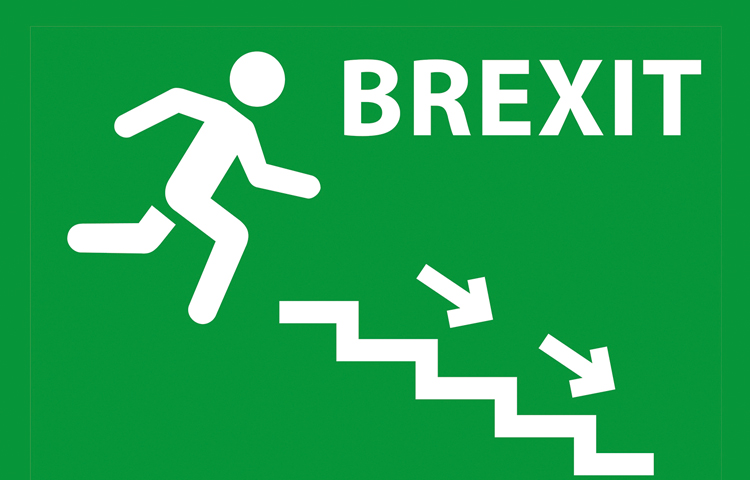
It’s been a summer of contrasts for Great Britain. In June, the EU referendum split the country, turning friends and even families against each other on an unprecedented scale, inciting an increase in racism and even causing a spike in reports of depression and mental health issues. Yet just weeks later, Team GB’s performance at the Olympics in Rio reunited the nation – however briefly – as sport replaced politics on the front pages.
Sporting success at any level, though, requires investment – of money, time and effort – and the current economic turbulence will have an impact on both a personal and a national level.
Let’s start with elite sport. There can be no doubt that Mo Farah, whatever he goes on to achieve on the track at next year’s World Championships or beyond, is approaching the twilight of his career.
But what of the next generation of young British athletes who are hoping to emulate his success at future Olympics?
For this summer’s Olympics, UK Sport received nearly £275 million in funding, of which £26,824,206 precisely went to athletics. The only sports to receive more were cycling (nearly £30.3 million) and rowing (just over £32.6 million).
Athletics hit the minimum target of seven medals, at a cost of £3.8 million each, while Britain’s cyclists won 12 (from a target of 8-10) at £2.5 million per medal, and the rowers underachieved by winning five medals at £6.5 million each from a target of six to eight. Yet the cost per gold medal makes gloomier reading for Team GB’s athletes: if you remove silver and bronze medals, Mo Farah’s two titles cost £13.4 million each, whereas the cyclists’ (six golds) cost just over £5 million each, and the rowers’ – who topped the medals table with three golds despite missing their overall target – cost £10.9 million each. That’s an awful lot of numbers, but they serve to highlight how difficult it can be to allocate funding.
There’s a question that needs to be answered before UK Sport can reach that point, however: will Brexit affect funding?
“Unlikely,” says Greg Whyte. “The vast majority of funding for elite sport comes from the National Lottery. The Exchequer has reduced its funding progressively since the introduction of elite funding, to the point where government investment is less important to the elite athlete. The area that could be affected is infrastructure facilities, which are funded centrally.”
“In the November 2015 budget review, the government increased funding for UK Sport by 29%,” says Simon Timson, director of performance at UK Sport. He is, perhaps unsurprisingly, bullish about the future: “There’s been a certainty in terms of Lottery investment, and we work in eight-year rather than four-year cycles so any negative impact of Brexit would be indirect. We started working for the Tokyo Olympics the day after London finished.”
“Money doesn’t win gold medals,” says Andy Lane, professor of sports psychology at the University of Wolverhampton. “Talent wins gold medals, and money helps that talent develop. It’s important for athletes to hold beliefs that there is a possibility that talent can be funded. If there is a clear talent ID programme, aspiring athletes know the standard to work towards and will stay in the sport.
“If there’s no funding, an unclear system, talented athletes can drop out. The amazing success of Team GB is based not only on supporting the very top but also by creating a competitive environment below it. Cut the hope out and the middle layer drops. In 1996, we achieved one gold medal – it’s not that long ago.”
Whyte takes a slightly different route to the same conclusion: “Medals follow money. There is a direct linear link between investment and success – the more you invest, the higher your position on the Olympic medal table. That’s why Team GB is the first to win more medals at an Olympics after hosting the Games – sustained investment. Reducing funding is a surefire way to reduce a country’s medal haul in future Games.”
“That middle layer is the podium potential of the future,” says Timson. “There’s a lot for British running to celebrate and there’s a huge opportunity for young athletes to come through. Our #DiscoverYourGold programme is just one way of helping to identify that talent.”
But does elite sport really still require such a huge amount of investment?
The money spent by UK Sport has gone towards setting up the programmes that have delivered success, but that infrastructure – in terms of facilities, coaching and sports science knowledge – is now in place. Whyte, who was himself an Olympian in the modern pentathlon, says it remains vital: “While the programmes that have developed under the historical funding will avoid a precipitous drop in the medal tally in 2020, there’s no doubt that continued funding is required to ensure continued success.”
And Timson agrees. “Olympic and Paralympic sport isn’t a facilities business, it’s a people business,” he says. “The fundamental nature of our business is to enable young talent to fulfil its potential, and any athlete with a dream will struggle to make it a reality without the right coaching and sports science. We’re the envy of the world, everyone’s looking to copy what we’re doing, and we cannot afford to stand still.”
Personal matters
Brexit won’t just potentially affect elite athletes, of course. Britain’s departure from the European Union will have an impact on all of us, whichever way you voted, both short and long term. In the short term, the threat of recession and the intertwined pressure on jobs and housing will put Britons under increased stress at work and at home, so it’s worth remembering in these uncertain times why we run.
Running is at least relatively inexpensive, so long as you have enough money for running shoes and clothes to run in, but it can be hard to keep your running goals in mind when you have other, frankly more important things to worry about. “The perception of change is important, when people think the economy is on a downslide, when people worry about their jobs,” says Lane.
“Brexit divided views – some people were cheering on leaving, others were miserable. Running for most people is a leisure activity, and finding time for leisure becomes more challenging if you are worried about your job. The immediate reaction to Brexit among many was a feeling of doom and gloom.”
It went beyond that, with many GPs and psychologists reporting increased incidences of anxiety and depression in the wake of the referendum.
“Running can act as a good mood regulator and it should be used in that way for most runners,” says Lane. “If people feel the negative effects of Brexit, it’s more important to maintain running as a way of managing their mental and physical health. If Brexit is a good thing, the world looks better and that sense of positive mood can provide a really good platform for chasing PBs. When you feel the world is smiling, if you just miss out on a PB there’s still good news in the background.”
Just remember: when you’re running, it’s always good news.






